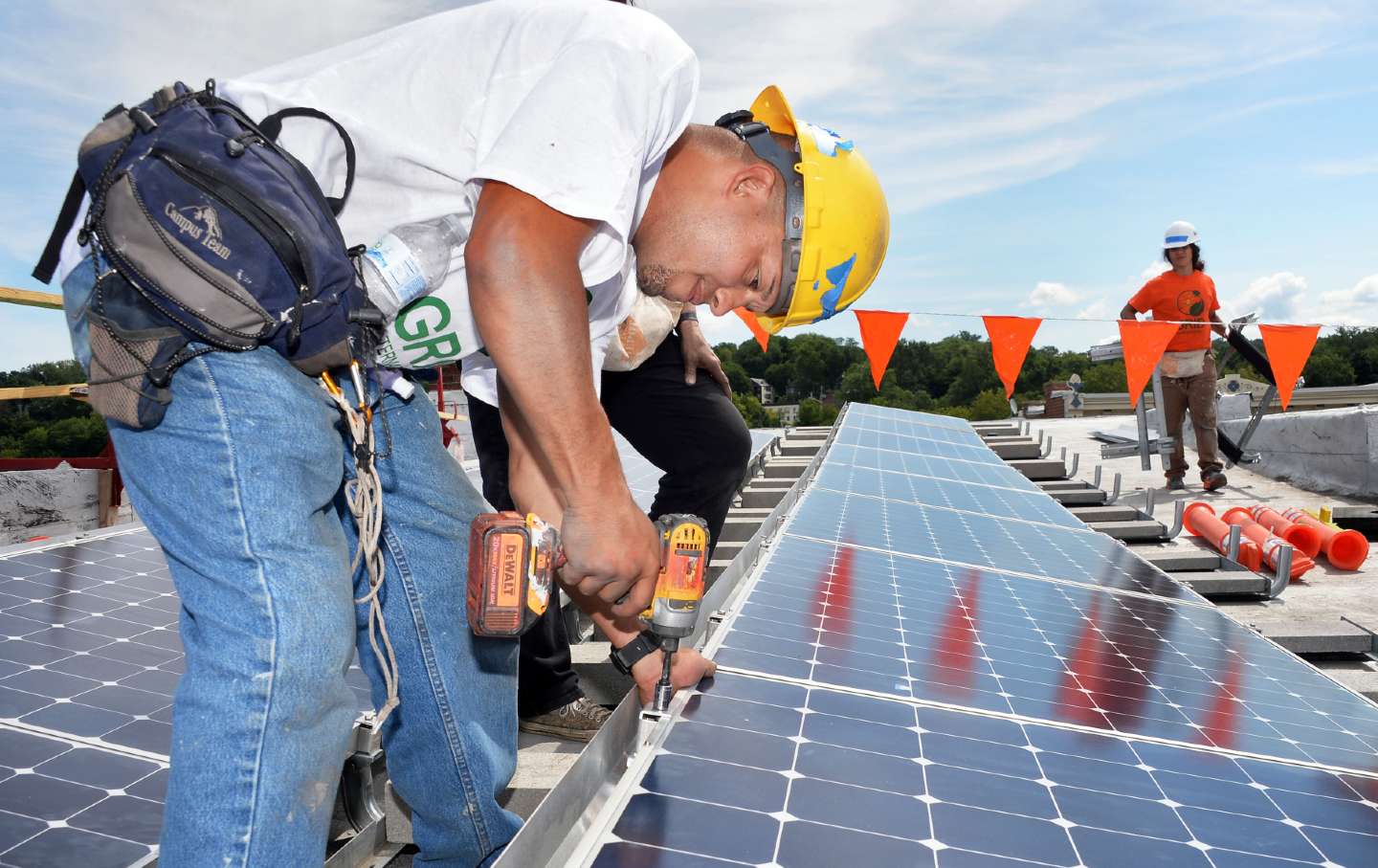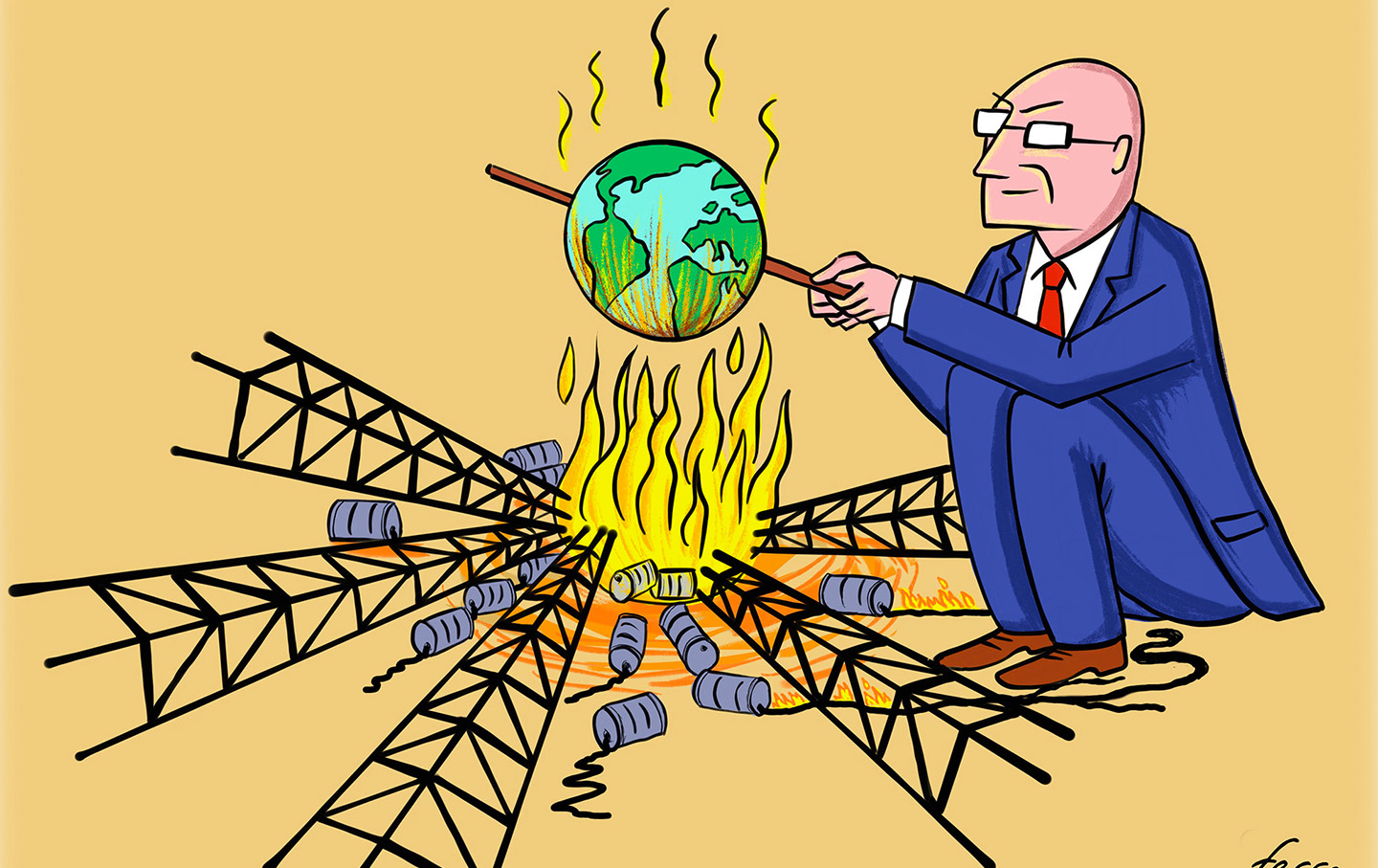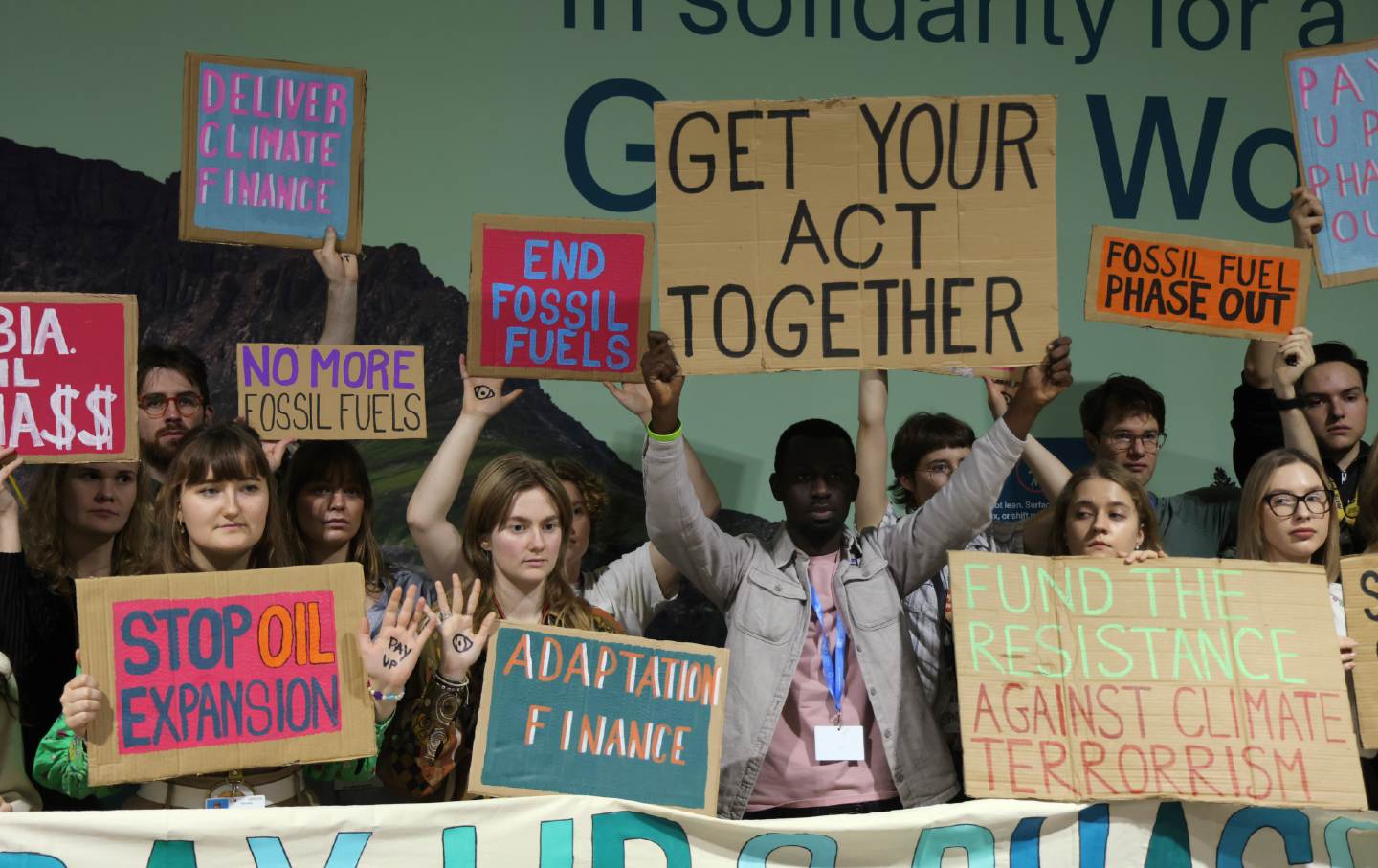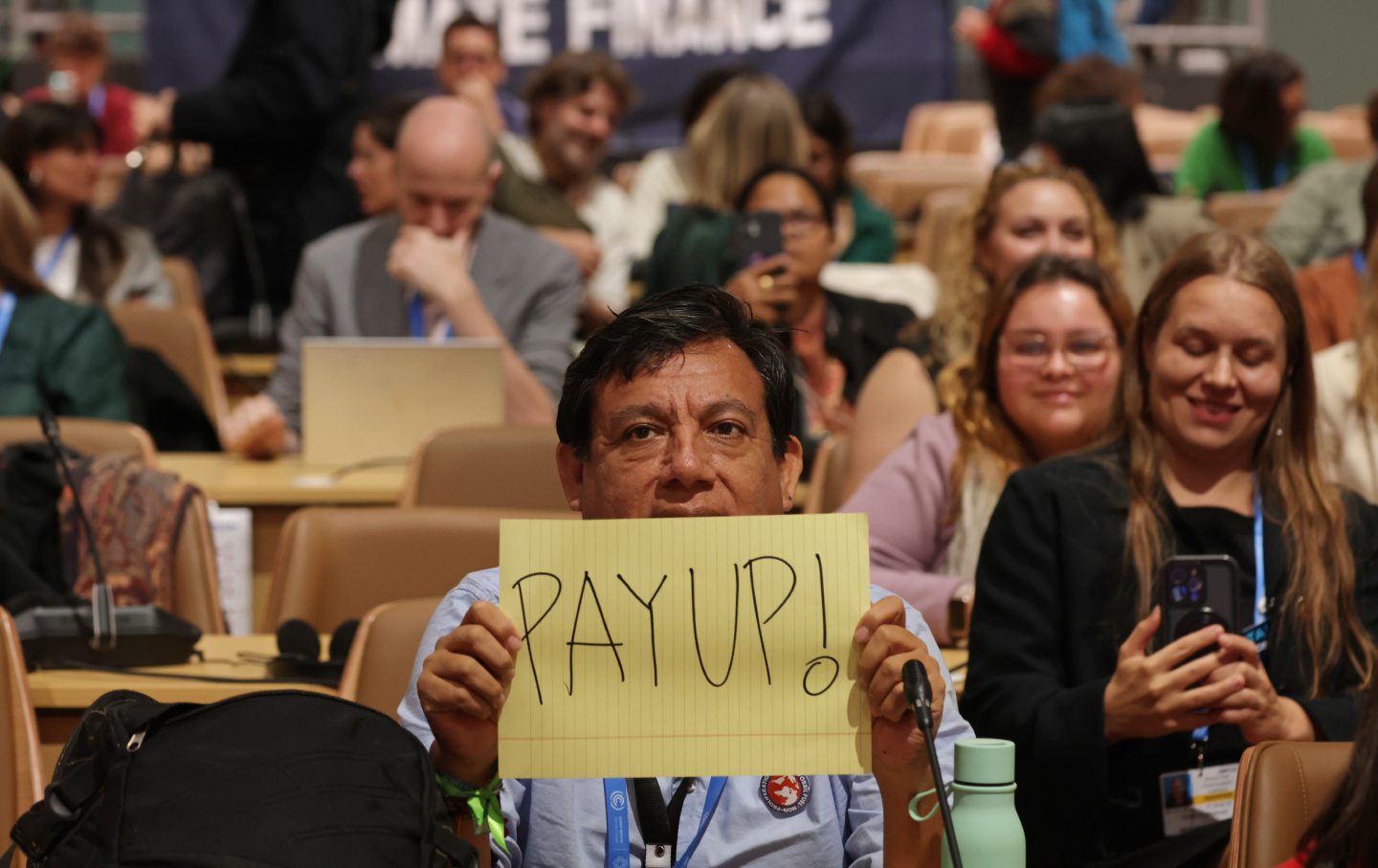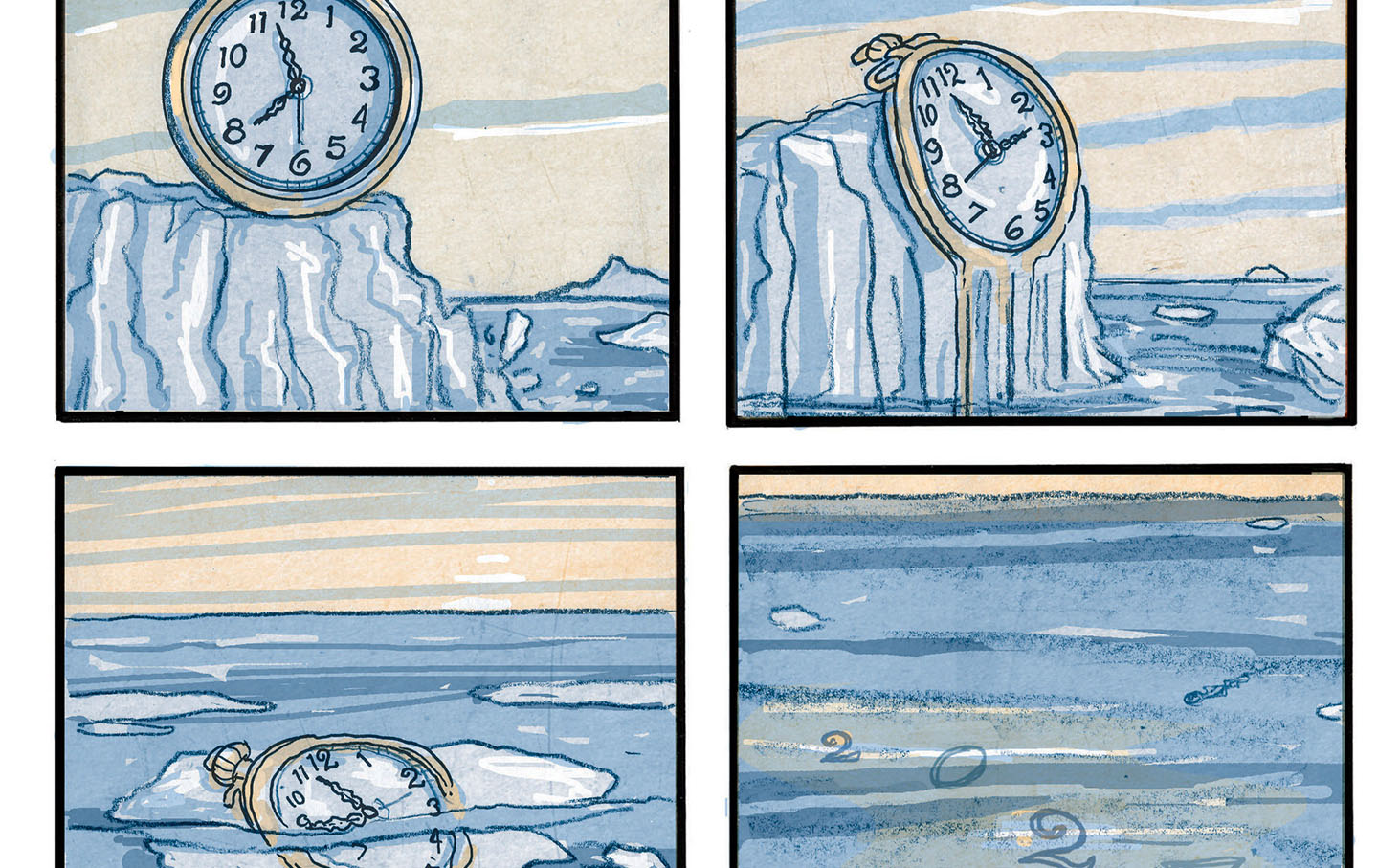Extinction Rebellion Wants to Reclaim the Port of Rotterdam
The climate activists are putting pressure on Dutch officials to reduce emissions at Europe’s most polluting port.
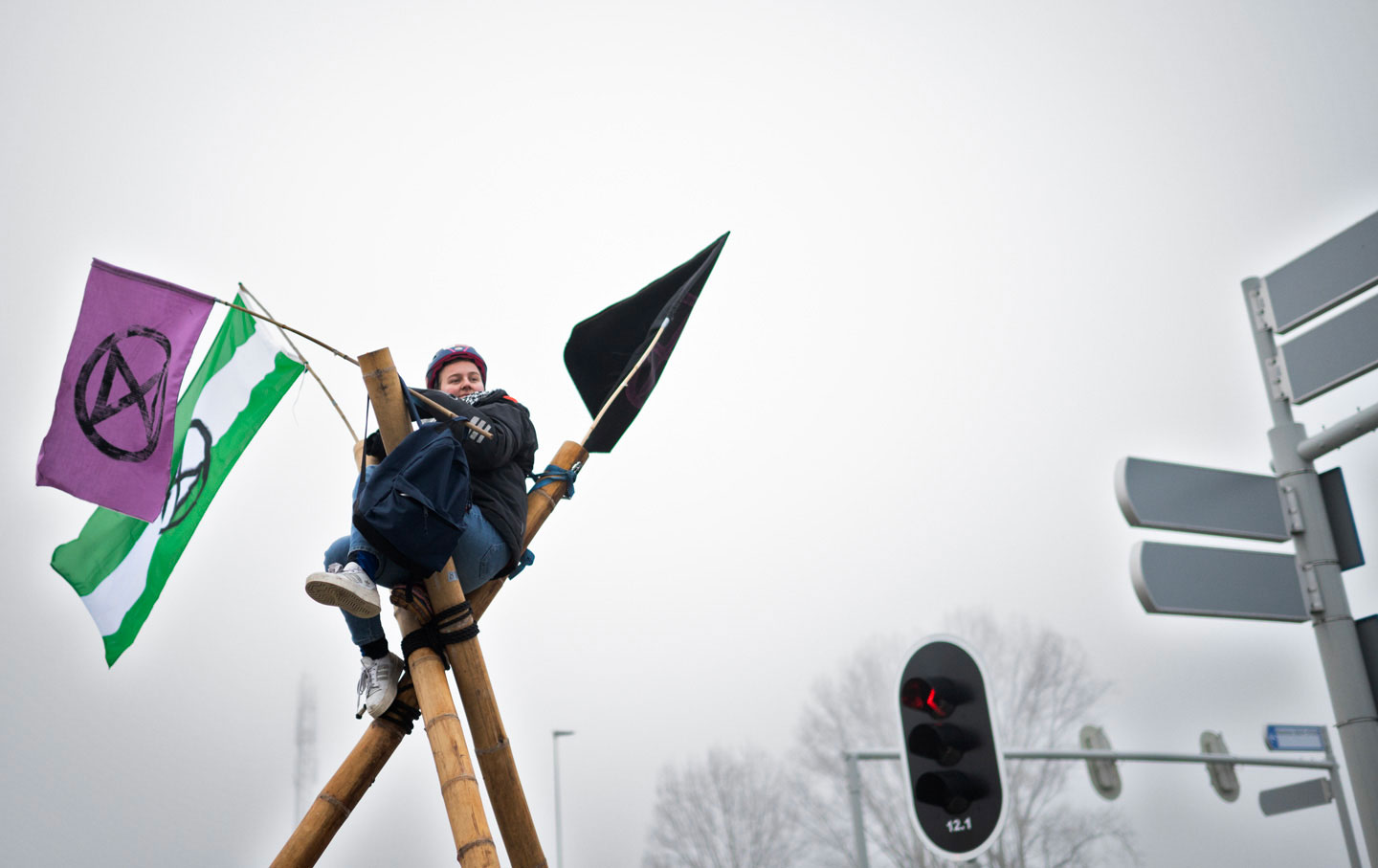
Rotterdam, Holland—Ali and Brockolie, two Extinction Rebellion activists in their early 20s, giggled and stuck out their hands. They showed me their fingers with gold glitter to obscure their prints in case of arrest. “Ali” and “Brockolie” aren’t their legal names. Like many other XR “rebels,” they use code names, which they change regularly. They kept the mood light, exchanging quips on this cold, gray day. “People can easily cramp up from the stress at the beginning of the action,” said Ali. “The experienced rebels, we make jokes.” That morning, more than 100 XR activists had already blocked access roads to the Port of Rotterdam in an attempt to force more aggressive climate action—but it wasn’t yet clear how the rest of the day would unfold.
Earlier this year, XR Rotterdam, a chapter of the decentralized climate movement Extinction Rebellion, made a strategic decision: Focus on Europe’s largest and most polluting port and demand that leaders ramp up decarbonization plans that XR says do not adequately respond to the accelerating climate crisis. For years, the mayor of Rotterdam, Ahmed Aboutaleb, has committed to decarbonizing both the city and the port, in which the city holds a majority stake. But climate activists say the city hasn’t done nearly enough.
Carbon accounting is notoriously difficult, but estimates say the Port of Rotterdam contributed about 16 percent to the Netherlands’ overall carbon dioxide emissions in 2020. This counts only CO2 emissions—not other greenhouse gases like methane—and only emissions that are directly attributable to the port, not, for example, shipping to and from the port or the fossil fuel use the port facilitates. As a significant contributor to the Netherlands’ total emissions, and climate activists see the Port of Rotterdam as an opportunity for high-impact protests.
XR Rotterdam’s Reclaim the Harbor campaign launched on World Harbor Day in September 2023 with four demands: Increase actions to decarbonize the port, provide green jobs to ensure a just transition for port workers, cut pollution and take responsibility for its harms, and work with the people of Rotterdam to make decisions about the port’s future. The activists made national news when they strung a banner across Rotterdam’s Erasmus Bridge reading “Herover de haven”—“Reclaim the harbor.”
As world leaders headed to Dubai for December’s COP28 climate summit, XR Rotterdam made plans to block transport traffic to the port which receives, processes, and transports fossil fuels (including coal, oil, and liquified natural gas) that power northwestern Europe.
On the day of the action, XR Rotterdam broadcast logistics via Telegram, and in the morning, I met up with one of the groups at the city’s main train station, Rotterdam Centraal. Forty or so people were there—all adults but whose ages spanned generations. Everyone kept a low profile; there were no visible flags or XR logos. About half a dozen or so uniformed police officers patrolled the periphery of the group. One officer wearing a body camera slowly walked circles around us, turning his body toward us, making sure to capture our faces on video.

A short bus ride later, we arrived at the first site, a three-way intersection on a road that runs along the length of the more than 40-square-mile port. The activists quickly spread into the intersection, unfurling banners and blocking passage. Columns of trucks backed up in all directions. Occasionally, the activists chanted and sang in English: “Solid like a rock / rooted like a tree / we are here / standing strong / in our rightful place.” And: “The oceans are rising / and so are we.”
People chatted—some nervously, some excitedly—about the possibility of getting arrested. Floris de Ruiter, a 21-year-old activist who started protesting in early 2023 after his dad challenged him to stop complaining and act instead, told me he was losing count of the times he’d been detained—14 or 15. He cut his teeth on this year’s A12 protests in The Hague, in which protesters blockaded the A12 motorway every day for weeks and demanded that the Dutch government stop subsidizing fossil fuels. Police used water cannons to disperse the protesters. There were daily mass arrests.
“Whenever we as civilians try to take matters into our own hands, we’re put away as criminals, or terrorists,” Ruiter said as we walked between the blocked intersections at the Port of Rotterdam. But, “the hope is still there, because otherwise, I wouldn’t be doing this.” Staying focused is hard, he said, but “we have to be strategically wise with our energy.”
Just then, we heard a trucker laying on his horn. I turned, expecting a hostile gesture, but the driver waved, gave the activists an enthusiastic thumbs up, and kept honking as he drove away. Ruiter whooped.
Throughout the day, the police officers hovered, occasionally trying to eavesdrop on protesters’ conversations. They also kept away from the protest a handful of port workers in their automobiles, some of whom hurled insults at the activists, and they put up traffic cones to direct traffic and intervened when a port worker in a car looked ready to plow through the group barring his exit.
Popular
“swipe left below to view more authors”Swipe →The police also closely surveilled the protesters. A van equipped with half a dozen or more cameras parked close to the group. An XR activist spotted a monitor mounted on the passenger dashboard, broadcasting the footage the police were collecting—including video of the two of us. She photographed herself on the police monitor.
At the end of the day, the activists circled up. People bounced to stay warm; a group that had been sitting on the ground for hours barely moved and seemed immune to the cold. They’d stopped port traffic, but there’d been no arrests, and two people chained to each other seemed disappointed. An organizer reported good news: Mayor Aboutaleb wanted to talk. The group cheered.
On December 20, Aboutaleb sat down with XR Rotterdam. The activists criticized Aboutaleb for not using the city’s power as a majority shareholder in the port to force change. He acknowledged that the port’s energy transition has been too slow, promised to share activists’ concerns with the port authority, and asked for a follow-up meeting.
“Aboutaleb indicated that change does not happen without action and that we have to keep putting pressure on politicians,” said XR Rotterdam activist Daan van Meurs. “So we are on the right track, and we will continue to fight side by side with port workers and Rotterdammers to recapture our port.”

